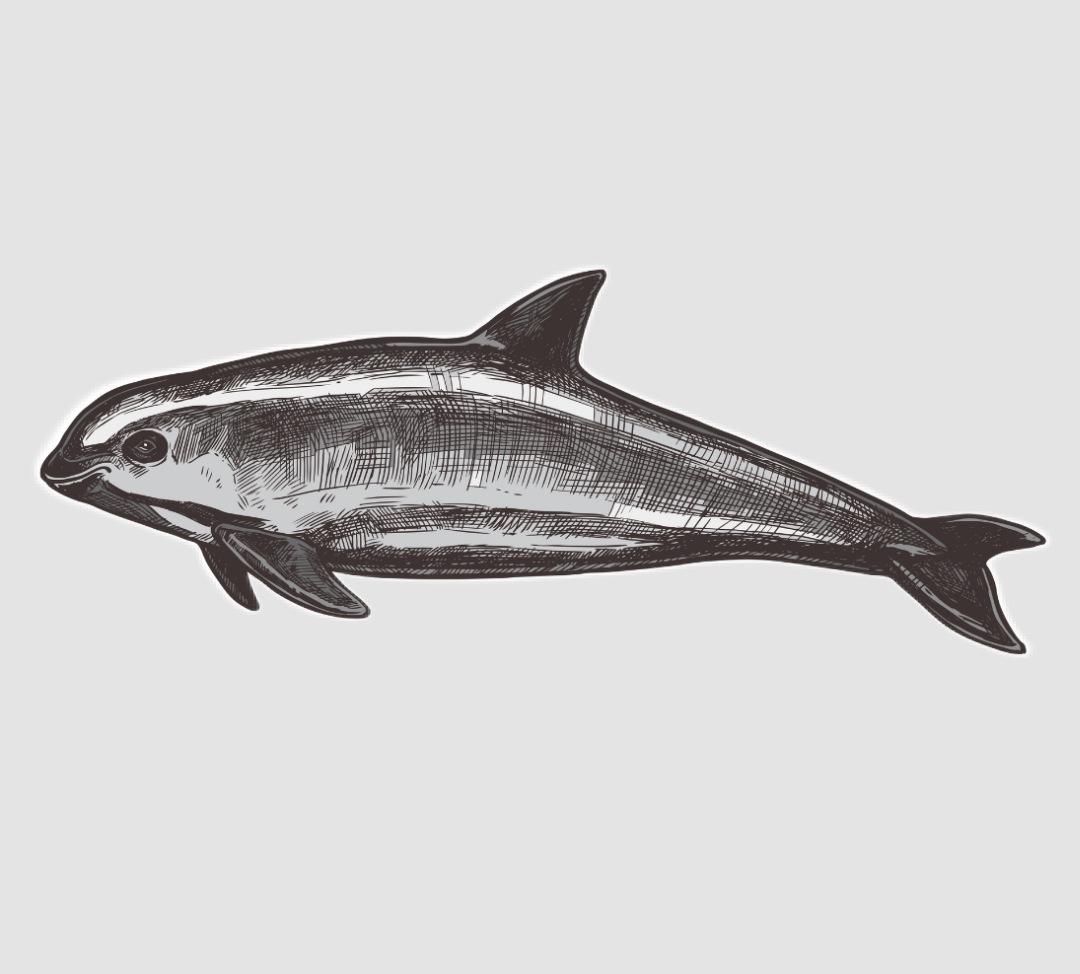Vaquita Extinction Alert. Just 10 animals remain.
Today, the International Whaling Commission (IWC) has issued its first ever ‘extinction alert’ and this is for the vaquita, a species of small porpoise found only in Mexican waters in the Gulf of California. Only around ten individuals now survive. The international marine conservation organization OceanCare calls on everyone involved to make the impossible possible and prevent the species from extinction by removing the threat posed by gillnets from their remaining habitat.
In its 77-year history, the IWC has never issued an alert like this before and it has been generated by the Commission’s Scientific Committee, a body of around 200 scientists from all around the world. The Scientific Committee concluded at its last meeting that a new mechanism was needed to raise extinction concerns and make the imperilled situations of some species and populations more public. This first deployment of such a statement is focused on what is the most endangered species of cetacean in the world.
The primary threat to the vaquita is entanglement in fishing nets and where the population lives in the northernmost Gulf of California, Mexico, there is an illegal fishery for a large fish species, the totoaba – which is itself an endangered species and whose large swim-bladder (an internal organ that helps maintain position in the water column) is of very high value in the Asian traditional medicines market. It is this trade that has driven the vaquita to where it is now – a double conservation tragedy.
Mark Simmonds, OceanCare’s Director of Science and a long-standing member of the IWC’s Scientific Committee, comments: ‘For more than three decades, the IWC’s Scientific Committee and other expert bodies have voiced their very strong concerns about the vaquita and the population has continued to decline despite the fact that the cause – capture in gillnets – has long been clear. There can be no more hesitation, no more prevarication, full protection must be put in place and the gillnets of all fishers effectively removed from their habitat for good. We have already lost one species of cetacean in my lifetime, the baiji or Chinese river dolphin, we must not lose any others”.
“What does the situation tell us, when we are about to lose a species and the international scientific community has called for the implementation and enforcement of identified conservation measures for 30 years? If we can’t protect such charismatic ambassador of the ocean, do we truly believe in our species’ capability to protect others?” comments Sigrid Lüber, president and founder of OceanCare, who has been involved in urging governments to act since threat to the vaquita was first recognised.
The Scientific Committee has noted there is still hope for its survival if actions follows fast and fishing nets are removed from their habitat.
Background information
The vaquita (Phocoena sinus) is also known as the Gulf of California porpoise. It is one of the smallest cetaceans (only 140-150cm in length) and is mostly grey with a darker back and lighter belly. It has dark rings around its eyes and its dark lips. Numbers have fallen from a population of approximately 570 in 1997 to around 10 animals and in 2018 it has been categorised as critically endangered on the IUCN Red List. Its distribution is restricted to an area in the northernmost Gulf of California, Mexico.
It was only defined as a species fairly recently – i.e. in 1958 and not fully described until the 1980s, meaning that its historical abundance and distribution is unknown. Vaquita is Spanish for ‘little cow’.
See Extinction Alert Statement published on the IWC website for more information: https://iwc.int/en/
The baiji or Chinese river dolphin (Lipotes vexillifer), which used to inhabit the Yangtze river system in China is listed as “critically endangered: possibly extinct” by the IUCN and has not been seen in 40 years
OceanCare also draws attention to the fact that there is another population of porpoises in similar peril in the Baltic Sea – this is a small and distinction population of harbour porpoises which is also classified is critically endangered. Action is urgently needed to address the main threats to it which again are focused on fishing activities. This population will be discussed at the next full meeting of the Convention for the Conservation of Migratory Species (CMS) in February 2024 in Uzbekistan.
Podcast on Vaquita Extinction Alert
In The Society for Marine Mammalogy Podcast, Mark Simmonds, the Director of Science at OceanCare, speaks about the plight of the vaquita and the Extinction Alert issued by the International Whaling Commission – a plea to galvanize urgent international Governmental action to try to save the most critically endangered marine mammal in the world.
